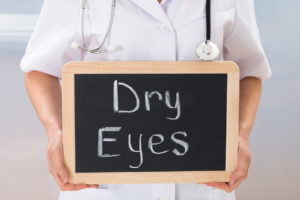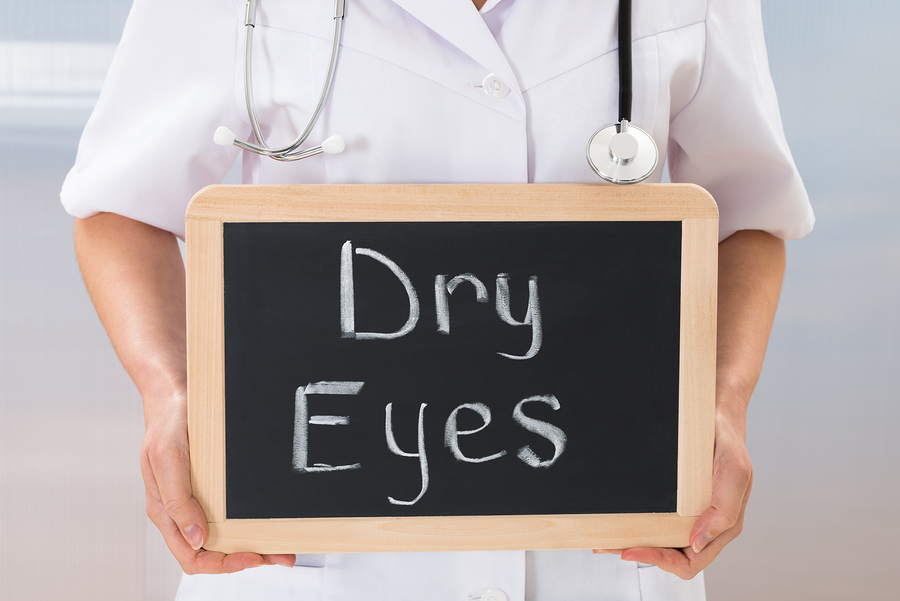Dry eye syndrome happens when a person’s eyes don’t make enough tears to keep their eyes lubricated, or they make tears, but not of a good quality. It’s an uncomfortable feeling that can make your older family member’s eyes sting or burn. Knowing more about what causes dry eye and how you can help the senior to ease the symptoms can make them feel a lot better.
About Dry Eye and Its Causes

In addition to a stinging or burning sensation, dry eye can cause many other symptoms, including:
• Mucus in the corners of the eyes that is of a stringy consistency.
• Light sensitivity.
• Red eyes.
• Feeling like there is something in the eyes.
• Trouble driving at night.
• Watery eyes.
• Blurry vision.
• Tired eyes.
In most cases, dry eyes are caused by the eyes not producing enough tears. A decrease in tear production can be caused by many things, including:
• Getting older.
• Some medical conditions, like diabetes, rheumatoid arthritis, and thyroid problems.
• Certain medications can cause dry eye as a side effect, such as antihistamines, medicines for high blood pressure, and some used for Parkinson’s disease.
• Damage to tear glands from radiation or inflammation.
What to Do About Dry Eye
Dry eye is often triggered by environmental factors that can be avoided. Some of the ways you can help your aging relative to avoid dry eye symptoms are:
• Choose the Right Place to Sit: Make sure they sit in places where air from open windows, fans, or air conditioners are not blowing into their eyes.
• Avoid Dry Air: Use a humidifier in the house to increase moisture in the air. This is especially important in the winter when heating the house can dry out the air.
• Use Eyewear: Encourage the older adult to wear protective eyewear, such as wraparound sunglasses. If they wear glasses, you can purchase shields that attack to them and keep air from entering from the tops or sides and hitting the eyes.
• Take Breaks: Remind them to take breaks from reading or looking at computer screens for a long period of time.
• Quit Smoking: If the older adult smokes, quitting can help to protect their eyes. If they don’t smoke, discourage people from smoking around them.
Elderly care providers can assist older adults to lessen symptoms of dry eye. An elderly care provider can help them to find the best place to sit to avoid air blowing into their eyes. Elderly care providers can also keep a humidifier running in the house, keeping it filled and clean. And, an elderly care provider can remind others not to smoke around the senior because it can irritate their eyes.
If you or an aging loved-one are considering Elderly Care in Post, TX, please contact the caring staff at Best In-Home Care (806) 412-0723.
Sources
https://www.mayoclinic.org/diseases-conditions/dry-eyes/symptoms-causes/syc-20371863
https://www.webmd.com/eye-health/eye-health-dry-eyes#1
https://www.allaboutvision.com/conditions/dryeye-syndrome.htm

